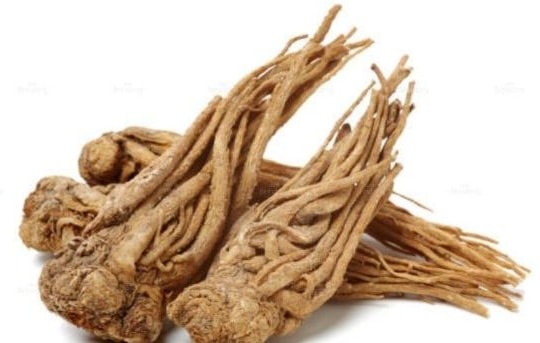Is it good to eat beef tendon?
Adding beef tendons to your daily diet not only helps maintain a healthy body but also prevents many age-related diseases.
Beef tendon is a familiar ingredient in many traditional Vietnamese dishes such as vermicelli or stews.
Not only is beef tendon a delicious food, it also has many health benefits that few people know about. In particular, beef tendon is a rich source of collagen. This is an important nutrient that helps improve the health of the skin, joints and digestive system.
Protect bones and joints
According toHealthlineCollagen is a protein that accounts for a large proportion of the human body, playing a key role in maintaining skin elasticity, joint health and connective tissues. In particular, beef tendons contain a large amount of type I collagen. This is a highly elastic collagen that helps strengthen bones and joints.

Beef tendons are rich in collagen (Photo: Getty).
Many scientific studies have demonstrated the health benefits of collagen.
A study published in the journalNutrientsIn 2019, it was found that supplementing collagen from foods like beef tendon can help improve skin and reduce signs of aging.
After 8 weeks of regular collagen use, the study participants had smoother skin, reduced wrinkles and significantly increased elasticity.
In addition, collagen in beef tendons also has the effect of protecting joints and bones, especially useful for the elderly or those with joint problems.
According to a study onJournal of Sports Science and Medicine, consuming collagen from food helps reduce joint pain caused by strenuous exercise or age.
Support the digestive system
Collagen is not only beneficial for skin and joints, but is also important for digestive health. In beef tendon, amino acids such as glycine play a role in supporting the intestinal mucosa, protecting and enhancing the growth of connective tissue, helping to improve intestinal health.
A 2017 study from Yale University showed that glycine—a key amino acid in beef tendon collagen—has powerful anti-inflammatory properties, particularly for the digestive system.
Scientists have shown that glycine can reduce symptoms of inflammatory bowel disease (IBD) and leaky gut syndrome, while improving digestive function.
Furthermore, supplementing collagen from beef tendons also helps balance intestinal microflora, facilitating nutrient absorption and protecting the body against digestive diseases.
Strengthen muscles
With high protein content, beef tendons are an ideal food for those who want to recover muscles after exercise.
Collagen in beef tendons helps rebuild damaged muscle tissue, while enhancing the body's resilience and endurance.

Beef tendons help protect blood vessels (Photo: Getty).
According to a study conducted at the University of Freiburg (Germany), athletes who supplemented with collagen from beef tendons recovered their muscles 20% faster than the group that did not consume collagen.
This study also found that collagen supplementation reduced the risk of injury, especially injuries involving joints and muscles.
Collagen in beef tendons contains amino acids such as glycine and proline. These are important components in energy production and also help reduce muscle soreness after intense exercise.
This is why many professional athletes have added collagen to their daily diet.
Protect blood vessels
Collagen in beef tendons contains a large amount of the amino acid proline, a substance that can reduce blood pressure and improve blood vessel health. Proline helps regenerate blood vessel wall tissue, thereby reducing the risk of cardiovascular disease, especially in people with a history of high blood pressure.
A study onAmerican Journal of Clinical Nutritionin 2020 found that people who consumed collagen regularly had a 15% lower risk of cardiovascular disease than the control group.
This proves that collagen in beef tendons not only helps improve bone and joint health but also protects the cardiovascular system.




